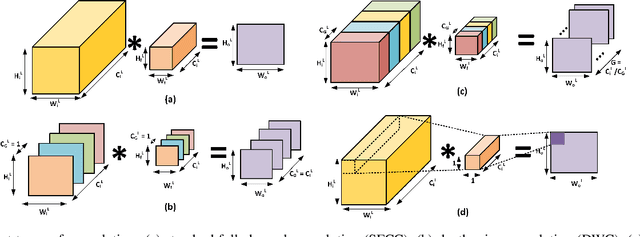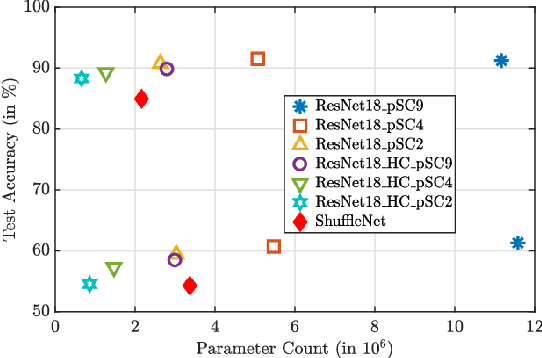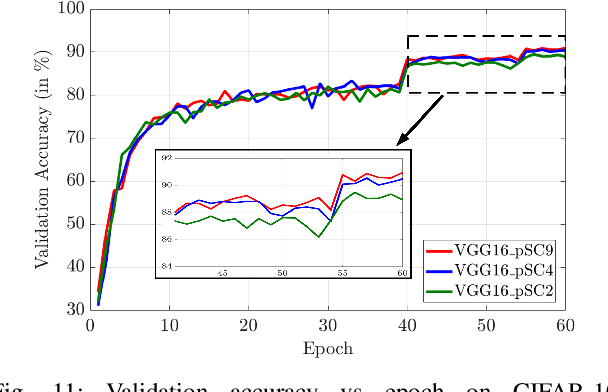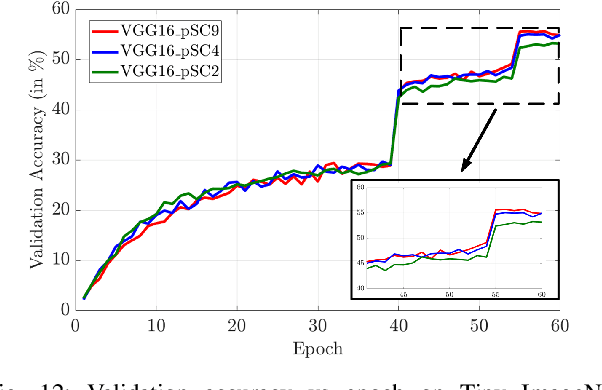A Pre-defined Sparse Kernel Based Convolution for Deep CNNs
Paper and Code
Oct 16, 2019



The high demand for computational and storage resources severely impede the deployment of deep convolutional neural networks (CNNs) in limited-resource devices. Recent CNN architectures have proposed reduced complexity versions (e.g. SuffleNet and MobileNet) but at the cost of modest decreases inaccuracy. This paper proposes pSConv, a pre-defined sparse 2D kernel-based convolution, which promises significant improvements in the trade-off between complexity and accuracy for both CNN training and inference. To explore the potential of this approach, we have experimented with two widely accepted datasets, CIFAR-10 and Tiny ImageNet, in sparse variants of both the ResNet18 and VGG16 architectures. Our approach shows a parameter count reduction of up to 4.24x with modest degradation in classification accuracy relative to that of standard CNNs. Our approach outperforms a popular variant of ShuffleNet using a variant of ResNet18 with pSConv having 3x3 kernels with only four of nine elements not fixed at zero. In particular, the parameter count is reduced by 1.7x for CIFAR-10 and 2.29x for Tiny ImageNet with an increased accuracy of ~4%.
 Add to Chrome
Add to Chrome Add to Firefox
Add to Firefox Add to Edge
Add to Edge